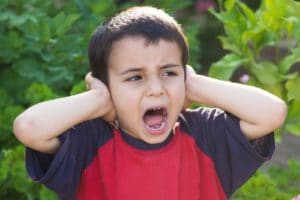You’ve noticed some changes in your teenage son or daughter’s behavior. They’ve started snapping at you when you ask them a simple question or they respond with a single-word answer. They’ve started spending a great deal of time alone in their room with the door closed and are always on their phone talking, texting, Snapchatting, and messaging with their friends. And they just don’t seem as happy as they used to. You’ve asked them if everything is okay but they always respond with an exasperated sigh that they’re “fine” but you don’t believe them.
What’s a parent to do?
Without a doubt, the teen years are tough. Today’s teens are faced with a variety of challenges ranging from hormone changes, peer pressure, society’s expectations, social media messages, and the process of growing up. Teens often have a reputation for being moody, making reckless decisions, feeling misunderstood, and decreasing communication with their parents. So when your teen transforms from a happy-go-lucky child into an irritable, secretive, and moody teenager, how do you know whether he or she is exhibiting typical teen behavior or something more serious like depression?
Because depression in adolescents looks slightly different than it does in adults, it’s important to know those differences to help you get a better idea of whether your son or daughter might need professional help. Here are some things to keep in mind if you suspect that your child may have depression.
According to the National Institute of Mental Health, about 3.1 million adolescents (ages 12 to 17) or 12.8% of adolescents experience a major depressive episode each year. Additionally, females (19.4%) are more likely than males (6.4%) to experience a major depressive episode. And approximately 60% of adolescents who have depression do not receive treatment.
Know the Signs
Knowing the signs of depression can help ensure that your adolescent is not one of the 60% of teens who don’t receive treatment for their depression. Depression consists of the presence of the following symptoms over two weeks or more:
- Sad mood
- Low energy/fatigue
- Feeling hopeless
- Feeling guilty or worthless
- Irritability
- Loss of appetite (or increase of appetite)
- Weight loss (or weight gain)
- Loss of interest in activities once enjoyed
- Feeling restless
- Talking and moving more slowly
- Difficulty concentrating
- Difficulty falling asleep and/or staying asleep
- Thoughts of death and/or suicide attempts
- Unexplained physical ailments
If you recognize some of these symptoms in your teen, they may be exhibiting signs of depression. Remember, as a parent, your role is to recognize the signs so that you can help your teen find professional treatment. You don’t have to worry about diagnosing and helping your teen all on your own. You are not alone.
Look for a Pattern
Looking for a pattern of behavior and emotions can help you discern whether or not your teen may be exhibiting some of the signs of depression. If you schedule an appointment with a therapist, they’ll ask your teen how long they’ve been experiencing their symptoms. Your therapist is looking for a pattern of symptoms that having been going on for at least two weeks (or longer).
One bad day isn’t necessarily a sign that your teen is experiencing depression. And we all go through stressful times where we’re tired, run down, and on edge but it doesn’t mean we’re depressed. However, if you notice that they are sad, withdrawn, moody, low energy, or complain of physical pains more days than not over a two week period, there may be something like depression or some other issue going on.
More than “Typical Teen” Moodiness
While feeling sad is one of the symptoms of depression, it often shows up as irritability, anger, and agitation in teens. Yes, it’s typical for teens to be irritable and moody from time to time. Their hormone are changing and fluctuating and they’re struggling to find their place in the world. So, while it’s normal for your teen to be moody, if you notice your teen exhibiting more than just typical irritability, it may be a sign of depression.
If you start to recognize a pattern of moodiness beyond being a “typical teen”, ask your teen how they’ve been feeling lately to see if they’ve also noticed a change. You might even reach out to their teacher, if appropriate, to see what their observations are. So, while you’re teen might not seem sad, if you observe a pattern of them being consistently irritable, angry, or agitated, it may be a sign of depression.
What’s Happening Socially and Academically?
Sometimes, people can experience depression as a result of something happening in their lives whether in school or socially. Additionally, social or academic problems can be a sign that a teen may be depressed. For example, if your teen is experiencing depression, he or she may withdraw socially from some friends or their academic performance might start to decline. Bullying may even be a factor.
If you start to notice your “A plus” student suddenly has unexplained absences, slipping grades, missing assignments, or getting in trouble you may want to speak with the school counselor and their teacher to see what their insights and observations are.
Are They Complaining of Physical Symptoms?
Your teen’s physical health may also be affected if they are experiencing depression. Low energy or, conversely, agitation, can be a sign of depression. Additionally, your teen may complain of frequent headaches or stomach aches.
If he or she does seem to have a pattern of headaches or stomach aches, schedule an appointment with their primary care physician to rule out any medical cause of their symptoms. If your teen is exhibiting other signs of depression and complaining of physical symptoms, these may also be a symptom of depression.
Find a Therapist
If you think that your teen may be experiencing depression, a competent therapist can evaluate your teen for depression and can create an effective treatment plan to treat their depression. Your therapist may also recommend scheduling a consultation with a psychiatrist to see if medication is appropriate for your teen.
Depression may also come with the risk of suicidal thoughts or intent making it all the more important that you help your teen access professional treatment so that they can be monitored for any signs of suicide.
Staying involved in your teen’s life can help you be on the lookout for any changes in your teen’s behavior and emotions. Check in with them daily to see how they are doing. While your teen may be prickly from time to time and less cute than they were when they were little, they still value and need your guidance as a parent, especially when it comes to seeking treatment for depression.










